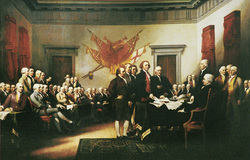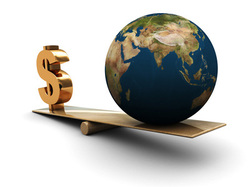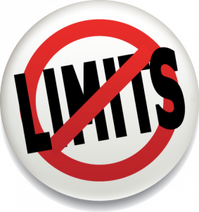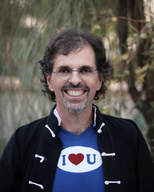 My dear friend Chuck Swedrock, who is a fellow chanter and an organizer extraordinaire, has posted a set of YouTube videos of an August 31 Global Chant circle that we did as part of the International Association for Near-Death Studies (IANDS) conference taking place in Scottsdale, Arizona. In fact, Chuck created an entire YouTube channel entitled "IANDS Conference Chant Circle," which you can access here: http://www.youtube.com/playlist?list=PLkbvG-WwzjnA-WE2u_SrU5CGHsL9dojFX&feature=plcp Many thanks to Chuck for his tremendous effort in putting this together for us. He plans on making audio CDs and DVDS from the chant circle available for purchase, with proceeds going to PlayHaven and IANDS. We will let you know more about these options in the days ahead. In the meanwhile, please enjoy the new chanting videos.
33 Comments
 The United States of America carries a deep wound that you and I have the opportunity to heal. This wound can be summarized in one word: slavery. Psychologists like Carl Rogers have understood that individuals cannot attain mental health until their actual self is aligned with their ideal self. The same is true of nations. From its inception, our nation has had a huge rift between its ideal self (“all men are created equal”) and its actual self (a nation built by slaves). Thomas Jefferson was the ultimate embodiment of this paradox. At the time he wrote the Declaration of Independence, he owned more than 100 slaves. Although unwilling to support the abolition of slavery or even to free his own slaves, Jefferson realized the potential ramifications of this practice: “Indeed I tremble for my country when I reflect that God is just (and) that his justice cannot sleep forever.” Whether we call it divine justice or karma, the ripple effects of slavery continue to be felt not just in the U.S. but throughout the entire world. The Fourteenth Amendment to the U.S. Constitution, adopted in 1868 abolished slavery but also opened the door for corporations to be granted the same rights of personhood as former slaves. Like the slave owners of old, modern corporations have put profit ahead of human welfare. But the form of slavery practiced by corporate giants has a far broader reach, extending to every nation and to every living being on this planet. Corporations are privatizing everything that sustains life on Earth, including land, air, water, food, and all other natural resources. And just like slave owners, corporations have no burden of responsibility to their property—only to their profits. The wound that slavery has produced may in fact be lethal. But we still have time to heal this wound. First, we can free ourselves from corporate slavery. This means finding ways to feed, clothe and house ourselves that do not rely on corporations. Not only is it possible to withdraw our energy from an economic system that is destroying life on our planet; it is our sacred duty. The second task, which is equally important, is to offer blessings to all concerned: slave owner and slave, exploiter and exploited, rich and poor. We are all in this together, which is why forgiveness is so crucial. Yes, we can offer forgiveness to those who enslave, but we can also ask for forgiveness for our part in the enslavement process.  I recently came across an essay by Andrew Greely entitled, "America's Disease is Greed." The essay chronicles what you and I already know: that we are living in an Age of Greed. In our society, the pursuit of wealth seems to trump most other values. That is why fossil fuel sales continue during a year of such record heat that even the CEO of Exxon Mobil has admitted the reality of global warming. You don't have to look far to find evidence that this is an Age of Greed. Our society can justify virtually anything on the basis of profitability, including war, exploitation of the workforce, endangering public health, and destroying entire ecosystems. And it's important to note that most of us are contributing to this trend through our patterns of consumption, our career choices, and perhaps most importantly, our willingness to chase the dangling carrot-on-a-stick. One thing we can safely say about this Age of Greed is that it will be coming to an end very soon. Even if we do nothing, the gears will grind to a halt inevitably. The reason is that the machinery itself is unsustainable. Climate change means crop failures and food shortages. Forestry, fishery, and other industries dependent on natural resources will vanish overnight as those resources become scarce. Financial markets built on elaborate forms of gambling are destined to collapse. When the Age of Greed screeches to a halt, what will take its place? The answer to this question is entirely up to us. Now is the time to envision and put in place new social and economic models that are based on something more fulfilling and sustainable than greed, such as resourcefulness and cooperation. Whereas greed is insatiable, the spirit of selfless service is infinitely satisfying. Perhaps the next era in human history will be an Age of Loving Kindness, as predicted in Buddhist teachings. Instead of dollars and cents, the currency of the new age might just be love and joy.  Perhaps the greatest conspiracy in human history is the underestimation of human ability. Ironically, the vast majority of us act as co-conspirators, reinforcing the limits of what we ourselves are capable of doing. The most intriguing thing about these self-imposed limits is that they fly in the face of facts. Whoever declares a particular ability to be outside the range of human potential is almost always destined to be wrong. It's just a matter of time before someone accomplishes a feat--any feat--that had once been considered impossible. Given the fact that the bar keeps getting raised on human potential, we are left to wonder: What limits, if any, are there on our physical and mental abilities? This week, the public radio program, Radiolab (http://www.radiolab.org), features a fascinating hour on "Limits" that attempts to address this very question. I strongly recommend this Radiolab episode, which looks at triathletes, mnemonists, long-distance bicyclists, and scientists trying to find patterns in nature with the aid of sophisticated computer programs. The show gives us some insights into the factors that make it possible for each of us to transcend our own self-imposed limits. After listening to it, please let me know what you think. I'd especially like to know of any experiences you might have had in which you pleasantly surprised yourself and went far beyond anything you thought yourself capable of doing. |
I want to hear from you! Please share your questions and comments. And sign up for my newsletter, where I will pass along the insights, ideas, and inspiration that come my way.
Contact me:Archives
November 2023
|

 RSS Feed
RSS Feed
